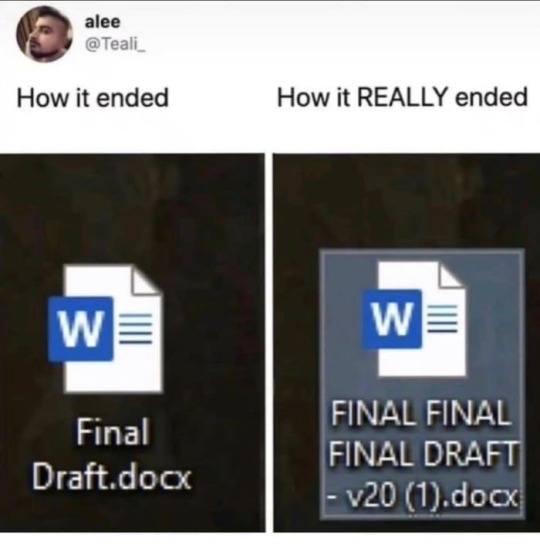#writing essays for college
Explore tagged Tumblr posts
Text

Turbo Granny blunt rotation WIP
#for a class assignment due todayyyy#still gotta edit the fucking 600 word description yuck#and write another essay for a different class#and read another manga chapter for that class#and do makeup readings/hw for my mesoamerican art history class plus the readings/hw for this week#and i haven't been sleeping more than like 4 hrs a night cause i started a new medication#which also gives me evening heart palpitations lol#and im skipping class to finish as much as i can#but eventually ill clean this up and color it!#eventually#hopefully#next term i snagged a spot in the only 2D animation class this stupid college has ever had#and set up my schedule to only take up 3 days despite having 4 classes#and hopefully 2 of said classes will be pretty easy#ones a 1x a week gardening thing and the others an online design class#i wanted to leave lots of time to animate#dandadan#turbo granny#animation#fanart#dandadan fanart#character turnaround#art#digital art#artists on tumblr#trans artist#my art#my animations#krita#tw drugs
862 notes
·
View notes
Text
jing yuan, who loves when you’re wearing his clothes, and you return them to him. it’s so domestic and simple but he craves it. (gn reader, not a serious drabble.) reader is characterized as smaller than jy, interpret as you wish.
wc: 470

The clothes smell like you, of course. The laundry detergent you bought, your shampoo and the little scent beads you like to put in the washing machine. He doesn’t mind the musk that lingers on his old shirts after you clean the whole house, no of course not. Jing Yuan adores smelling your musk, lotion and conditioner melding together and melting into his shirt.
You go out to buy new scent beads every other month, a tiny little jar of them. Jing Yuan swears to anyone who listens that you’re doing this on purpose. Mixing your shampoo and lotion to match with the scent beads, changing the fabric softener to mess with his head (and laundry). He laments this to Fu Xuan, Qingzu, and Yanqing, who all beg you to stick to one routine before the General loses his sanity (of course, everyone groans and ignores him. they’ve had enough of his marital escapades, and they just tell him to marry you again if he’s this smitten. Thus, after a decade of marriage, Jing Yuan has rewritten his vows.) He likes these little variances in his routine, the little harmless surprise that keeps him on his toes.
(He swears it's just because you picked it out. You know it's because it reminds him that there's finally a home for him to return to.)
"I'm back, do you know what the others said during the meeting, they were planning on handing off more paperwork, but I insisted mimi and you would--" He stops in his tracks. This must be unfair. Divine Punishment? Did he anger Lan? his ancestors?
Jing Yuan sees you wearing nothing but some socks, his shorts and t-shirt (both of which hang off of your smaller frame). He runs over, pace quickening.
You yelp quietly, backing away before he pounces onto you, bearing all of his weight onto you. He can't help it, you're so cute wearing his outfit, doing laundry and making dinner.
“You smell so good.” he buries his face into your neck, inhaling the sun on your skin, lotion he bought for you, and the conditioner you've taken from his stash.
“And you smell icky.” You push him off gently, but his arms only tighten. He just got back from work, and he reeks of sweat. But you can’t ignore how your heart races whenever he gets up to these antics, and you can’t help but indulge in his whims.
This is a regular habit. He barely removes his armor before running to you, and clings to you like a sullen child, asking about dinner and how his darling and mimi have been. You can only sigh and pat his head while he recharges in your lap (or, in Yanqing’s words: naps.)
"thank you, for everything," He whispers into your ear, "You're doing great, sweetheart."

a/n: I was talking to a coworker abt how the only thing that brings me joy now is a 2d man (jy) and buying new scent beads/laundry scent boosters or sample perfume. then I had this idea. also that ending bit :,) sending good vibes to all with my first fic of the new yr!
#hsr x reader#honkai star rail x reader#koi♪#don't take this too seriously? I just got bored and thought of jy who rlly likes your scent#and domesticity#and domecisity#honkai star rail#jing yuan x reader#I do think that whenever it comes down to it#Jing Yuan is someone who just wants to build himself a home. he's experienced a lot of change in his life time#probably more than an average xianzhou native has#so the idea of settling down + his spouse doing these domestic tasks#really gets to him on some days#esp after long meetings? curling up to his darling spouse is a treat#idk#he makes me feel very mushy on some days.#jing yuan fluff#almost the same length as my college essay (idk here it was a min 500 wc) and so much easier to write.#even tho it took me two days
364 notes
·
View notes
Note
Hello. Sorry if this a stupid question u can ignore if u want.
How can someone get better at media analysis? Besides obviously reading a lot.
Im asking this bc im in a point where im aware of my own lack of tools to analyze stories, but i don't know where to get them or how to get better in general. How did you learn to analyze media? There's any specific book, essay, author, etc that you recommend? Somewhere to start?
I'm asking you because you are genuinely the person who has the best takes on this site. Thank you for you work!
it sounds like a cop-out answer but it's always felt like a skill I acquired mostly thru reading a ton, and by paying a lot of attention in high school literature classes. because of that I can't promise that I'm necessarily equipped to be a good teacher or that i know good resources. HOWEVER! let me run some potential advice to you based on the shit i get a lot of mileage out of
first off, a lot of literary analysis is about pattern recognition! not just pattern recognition in-text, but out-of-text as well. how does this work relate to its genre? real-world history? does it have parallels between real-life situations? that kind of thing.
which is a big concept to just describe off the bat, so let me break it down further!
in literature, there is the concept of something called literary devices - they are some of the basic building blocks in how a story is delivered mechanically and via subtext. have you ever heard of a motif? that is a literary device. it's a pattern established in the text in order to further the storytelling! and here is a list of a ton of common literary devices - I'd recommend reading the article. it breaks down a lot of commonly used ones in prose and poetry and explains their usage.
personally, I don't find all the literary devices I've learned about in school to be the most useful to my analytical hobbies online. motifs, themes, and metaphors are useful and dissecting them can bring a lot to the table, but a lot of other devices are mostly like fun bonus trivia for me to notice when reading. however, memorizing those terms and trying to notice them in the things you read does have a distinct benefit - it encourages you to start noticing patterns, and to start thinking of the mechanical way a story is built. sure, thinking about how the prose is constructed might not help you understand the story much more, but it does make you start thinking about how things like prose contribute to the greater feeling of a piece, or how the formatting of a piece contributes to its overall narrative. you'll start developing this habit of picking out little things about a text, which is useful.
other forms of in-text pattern recognition can be about things like characterization! how does a character react to a certain situation? is it consistent with how they usually behave? what might that tell you about how they think? do they have tells that show when they're not being trustworthy? does their viewpoint always match what is happening on screen? what ideas do they have about how the world works? how are they influenced by other people in their lives? by social contexts that might exist? by situations that have affected them? (on that note, how do situations affect other situations?)
another one is just straight-up noticing themes in a work. is there a certain idea that keeps getting brought up? what is the work trying to say about that idea? if it's being brought up often, it's probably worth paying attention to!
that goes for any pattern, actually. if you notice something, it's worth thinking about why it might be there. try considering things like potential subtext, or what a technique might be trying to convey to a reader. even if you can't explain why every element of a text is there, you'll often gain something by trying to think about why something exists in a story.
^ sometimes the answer to that question is not always "because it's intentional" or even "because it was a good choice for the storytelling." authors frequently make choices that suck shit (I am a known complainer about choices that suck shit.) that's also worth thinking about. english classes won't encourage this line of thinking, because they're trying to get you to approach texts with intentional thought instead of writing them off. I appreciate that goal, genuinely, but I do think it hampers people's enthusiasm for analysis if they're not also being encouraged to analyze why they think something doesn't work well in a story. sometimes something sucks and it makes new students mad if they're not allowed to talk about it sucking! I'll get into that later - knowing how and why something doesn't work is also a valuable skill. being an informed and analytical hater will get you far in life.
so that's in-work literary analysis. id also recommend annotating your pages/pdfs or keeping a notebook if you want to close-read a work. keeping track of your thoughts while reading even if they're not "clever" or whatever encourages you to pay attention to a text and to draw patterns. it's very useful!
now, for out-of-work literary analysis! it's worth synthesizing something within its context. what social settings did this work come from? was it commenting on something in real life? is it responding to some aspects of history or current events? how does it relate to its genre? does it deviate from genre trends, commentate on them, or overall conform to its genre? where did the literary techniques it's using come from - does it have any big stylistic influences? is it referencing any other texts?
and if you don't know the answer to a bunch of these questions and want to know, RESEARCH IS YOUR FRIEND! look up historical events and social movements if you're reading a work from a place or time you're not familiar with. if you don't know much about a genre, look into what are considered common genre elements! see if you can find anyone talking about artistic movements, or read the texts that a work might be referencing! all of these things will give you a far more holistic view of a work.
as for your own personal reaction to & understanding of a work... so I've given the advice before that it's good to think about your own personal reactions to a story, and what you enjoy or dislike about it. while this is true that a lot of this is a baseline jumping-off point on how I personally conduct analysis, it's incomplete advice. you should not just be thinking about what you enjoy or dislike - you should also be thinking about why it works or doesn't work for you. if you've gotten a better grasp on story mechanics by practicing the types of pattern recognition i recognized above, you can start digging into how those storytelling techniques have affected you. did you enjoy this part of a story? what made it work well? what techniques built tension, or delivered well on conflict? what about if you thought it sucked? what aspects of storytelling might have failed?
sometimes the answer to this is highly subjective and personal. I'm slightly romance-averse because I am aromantic, so a lot of romance plots will simply bore me or actively annoy me. I try not to let that personal taste factor too much into serious critiques, though of course I will talk about why I find something boring and lament it wasn't done better lol. we're only human. just be aware of those personal taste quirks and factor them into analysis because it will help you be a bit more objective lol
but if it's not fully influenced by personal taste, you should get in the habit of building little theses about why a story affected you in a certain way. for example, "I felt bored and tired at this point in a plot, which may be due to poor pacing & handling of conflict." or "I felt excited at this point in the plot, because established tensions continued to get more complex and captured my interest." or "I liked this plot point because it iterated on an established theme in a way that brought interesting angles to how the story handled the theme." again, it's just a good way to think about how and why storytelling functions.
uh let's see what else. analysis is a collaborative activity! you can learn a lot from seeing how other people analyze! if you enjoy something a lot, try looking into scholarly articles on it, or youtube videos, or essays online! develop opinions also about how THOSE articles and essays etc conduct analysis, and why you might think those analyses are correct or incorrect! sometimes analyses suck shit and developing a counterargument will help you think harder about the topic in question! think about audience reactions and how those are created by the text! talk to friends! send asks to meta blogs you really like maybe sometimes
find angles of analysis that interest and excite you! if you're interested in feminist lenses on a work, or racial lenses, or philosophical lenses, look into how people conduct those sort of analyses on other works. (eg. search feminist analysis of hamlet, or something similar so you can learn how that style of analysis generally functions) and then try applying those lenses to the story you're looking at. a lot of analysts have a toolkit of lenses they tend to cycle through when approaching a new text - it might not be a bad idea to acquire a few favored lenses of your own.
also, most of my advice is literary advice, since you can broadly apply many skills you learn in literary analysis to any other form of storytelling, but if you're looking at another medium, like a game or cartoon, maybe look up some stuff about things like ludonarrative storytelling or visual storytelling! familiarizing yourself with the specific techniques common to a certain medium will only help you get better at understanding what you're seeing.
above all else, approach everything with intellectual curiosity and sincerity. even if you're sincerely curious about why something sucks, letting yourself gain information and potentially learning something new or being humbled in the process will help you grow. it's okay to not have all the answers, or to just be flat-out wrong sometimes. continuing to practice is a valuable intellectual pursuit even if it can mean feeling a tad stupid sometimes. don't be scared to ask questions. get comfortable sometimes with the fact that the answer you'll arrive at after a lot of thought and effort will be "I don't fully know." sometimes you don't know and that can be valuable in its own right!
thank you for the ask, and I hope you find this helpful!
#narrates#thanks for the kind ask! i feel a little humbled by your faith in me aha#this may be a bit scattershot. its 2 am. might update later with more thoughts idk#nyway i feel like a lot of lit classes even in college don't tell you why they're teaching you things that might feel superfluous#hopefully this lays out why certain seemingly superfluous elements of literary education can be valuable#the thing esp about giving theses and having a supporting argument... its not just because teachers need to see an essay or whatever#the point is to make you think about a text and then follow thru by performing analysis#and supporting that analysis w/ evidence from the text#u don't have to write essays but developing that mindset IS helpful. support ur conclusions yknow?#anyway thanks again hope it's illuminating
209 notes
·
View notes
Text










im back in school so have some college blinkies...
#blinkies#flashing lights#school#college#blinkies.cafe#gif warning#adhd#150x20px#write that essay#reminders#studyblr#studyblr blinkies#2x5
567 notes
·
View notes
Text

Portrait practice with Miss Holloway :)
#She’s so prettyyyyyyy#I heart Kim Whalen characters#also did this to get better at drawing her#because a different kim character was giving me a hard time yesterday#But yeah just a little drawing I did today while procrastinating writing my college essay#hope yall like it!#it was very fun to draw- especially her hair#hatchetfield#starkid#team Starkid#hatchetfield fanart#starkid fanart#team starkid fanart#nightmare time#nightmare time 2#kim whalen#miss holloway#ms holloway#my art
321 notes
·
View notes
Text
Tips for doing college essays!
Tip 1:
Cry
#college student#college#essay#essay writing#personal essay#informative essay#argumentive essay#tears#I dont know why i decided to go back this is horrible
244 notes
·
View notes
Text
We ask your questions so you don’t have to! Submit your questions to have them posted anonymously as polls.
#polls#incognito polls#anonymous#tumblr polls#tumblr users#questions#school#high school#college#essay#essay writing#polls about school#homework#submitted nov 9
497 notes
·
View notes
Text
How does it truly end🥲🥲🫠

#college#college life#student#study#studying#university#student life#study space#study hard#exam stress#my wriitng#writer problems#essay writing#writers on tumblr#writing#final exams#funny jokes#funny pics#funny videos
557 notes
·
View notes
Text
Only ten minutes in to Shanspeare's girlhood video (please check her out if you haven't already) and it's just got me thinking.
I never had this phase of girlhood that these girls and women are nostalgic for. I didn't have friendships where we did each other's make up and talked about boys, and I frankly always felt I was quite bad at even just being a girl. I didn't and couldn't do makeup, I couldn't do my own hair, and whenever I participated in trends/femininity it felt like I was playing catch-up. So none of this "girl blank" stuff is freeing for me because it's frankly foreign.
Also, the positing of femininity as uniquely freeing or pure does not resonate with me for the aforementioned reasons and because I am transgender. Being traditionally or stereotypically feminine feels and is restrictive for me, it doesn't better my life and in any way and being feminine no longer feels like catch-up; it feels like baring my throat to appease.
The trend of "I'm just a girl" turning to "you're actually not just a girl, you're the reason I believe in friendship" was a refreshing one, but it ignores the, to me, very real reality of "you're actually not just a girl, you bullied people in secondary school". The idea that womanhood, girlhood, and femininity are uniquely pure and divine is yet another harmful example of gender essentialism and cannot coexist with transgender and intersex discussions. As long as girlhood is portrayed as the better choice, trans men, transmascs, and all people who move away from it will be viewed negatively, like traitors. There is no "better" gender and we cannot cling to childish ideals forever; you have to grow up and let your views of gender, sex, and society shift and develop.
#hero hazards#hii can you tell i miss writing essays in college. anyway I'm going back to the video now#transandrophobia#< kind of? this is a very surface level off the dome post#but i also don't want it to seem like i hate girlhood! i liked being a girl i love being friends with girls and have very fond memories of#being a girl‚ specifically a fangirl and the communities i found around that. it's a nuanced topic and this post is not meant to be cover#every nuance and facet of this topic. i am just talking 👍
144 notes
·
View notes
Text
Jenson button photos that i’ve only just seen that i think need to be shared with the world pt 1 / ????




























#i could write an essay on each of these photos but alas.. i have so much college work to to…. the world is so cruel to me 💔#jenson button#f1#formula 1#jb22#formula one
459 notes
·
View notes
Text
The Totally Canon Ultimate Friend Group

#Remembered I could draw whatever I wanted#What if they were all happy#What then#gravity falls#stanley pines#stanford pines#fiddleford mcgucket#carla mccorkle#mystery trio#I personally call Stanley Ford and Carla the Jersey Trio#Jersey Trio#I could write an essay about these kids#Carla and Ford get to nerd out about geek stuff like Star Wars or whatever the equivalent is. Stan and Carla are dating obvi#Fiddleford and Carla are friend-of-a-friend for each other but they're also pretty chill with each other#And they're all happy and in college / trade school / something#Ultimate friend group goals#Watch them all head over to GF and be the most epic group ever forever#Guys what if they were happy 😭😭😭#stan twins#young stan twins#young stanford pines#teen stan#teen ford#Carla mccorkle x Stanley pines#This is so self indulgent I'm so happy and free#college stanford pines#backupsmore#Or maybe West Coast Tech this is a perfect world after all. They're all happy and together#my art
99 notes
·
View notes
Text
next essay I write is gonna be an analysis of FHJY and how Kipperlilly's viewpoint and perception parallels what students are taught to value and emphasize when it comes to the college admissions process and writing college essays (aka trauma is a golden ticket)
#fhjy#fantasy high#fantasy high junior year#junior year#d20#dimension 20#kipperlilly copperkettle#kipperlilly clerickiller#kipperlilly#rat grinders#college#college admissions#college essay#writing#essay writing
141 notes
·
View notes
Text
kipperlilly is suuuch an apt villain for a season that takes place during a junior year of high school. she’s basically the smart privileged kid who’s mad she doesn’t have any interesting trauma to write about in her college essay.
#I say this with a deep appreciation for the complexity of her character#dimension 20#fantasy high#fhjy#kipperlilly copperkettle#oh also psa to any teens#you dont need to write your college essay on some poetic trauma if you don’t have one#or even if you do#they literally just want to know how well you write and what you’re like as a person. that’s it.#my college essay was about when I yelled at a drunk guy when I was ten#and I got into a college that waitlisted my school’s valedictorian#literally just do whatever just try to connect it to a part of your personality or values
131 notes
·
View notes
Text
Tips From a Recent English Graduate (That May Apply to Other Arts Degrees)
• If you can't understand a certain book/essay, find a summary first, and *then* read what you needed to originally. It'll (hopefully) make more sense!
• If you're on a time crunch and you have a dense reading to do, read the abstract/introduction paragraph(s) + the concluding paragraphs. Authors will most likely have their key points outlined in these sections. Afterwards, you can go through the middle sections to pick out more concrete details.
• You probably won't be able to read every required text, and that's okay! I would skim a lot of my readings and make note of any sections that seemed particularly important (you learn to pick out the major details with practice). Also, if your professor seems to place more importance on a certain text than others, try to read that one more thoroughly.
• When it comes to essay writing, and you're required to choose between texts, brainstorm in bullet points key info from each text. Do this to identify the ones that a) have enough material for your argument and b) relate to your argument the most (they don't necessarily have to *back up* your argument; rather, they can serve as a counterpoint you can argue *against*). Making bullet points are a good way to ensure you're not stuck grasping for material later on in the writing process!
Hope these help! :)
#arts major#english degree#english major#literature major#lit major#university#college#studyblr#study tips#booklr#books#reading#writing#essay writing#literature analysis#critical analysis
76 notes
·
View notes
Text

A week late for Cater's birthday let's gooo
#college is consuming my life but hey!! now i can write really good essays in English isn't that neat??#twisted wonderland#twst fanart#disney twisted wonderland#twisted wonderland fanart#disney twst#fanart#digital art#twisted wonderland art#my artwork#disney#cater diamond#twisted wonderland cater#twst cater#twst heartslabyul
333 notes
·
View notes
Text
I feel like a lot of writers don’t talk about academic writing burnout. Like….have I been writing? Yes, I have. Pages and pages. More than I’ve ever written.
But I haven’t written anything creative in weeks. My precious book wip collects dust because I cannot bring myself to write more than I already have. It’s an exhausting tug of war between feeling productive and feeling like you haven’t made any progress.
#writing#writing memes#academic writing#college#writers#writer problems#writeblr#booklr#essays#academic papers
1K notes
·
View notes